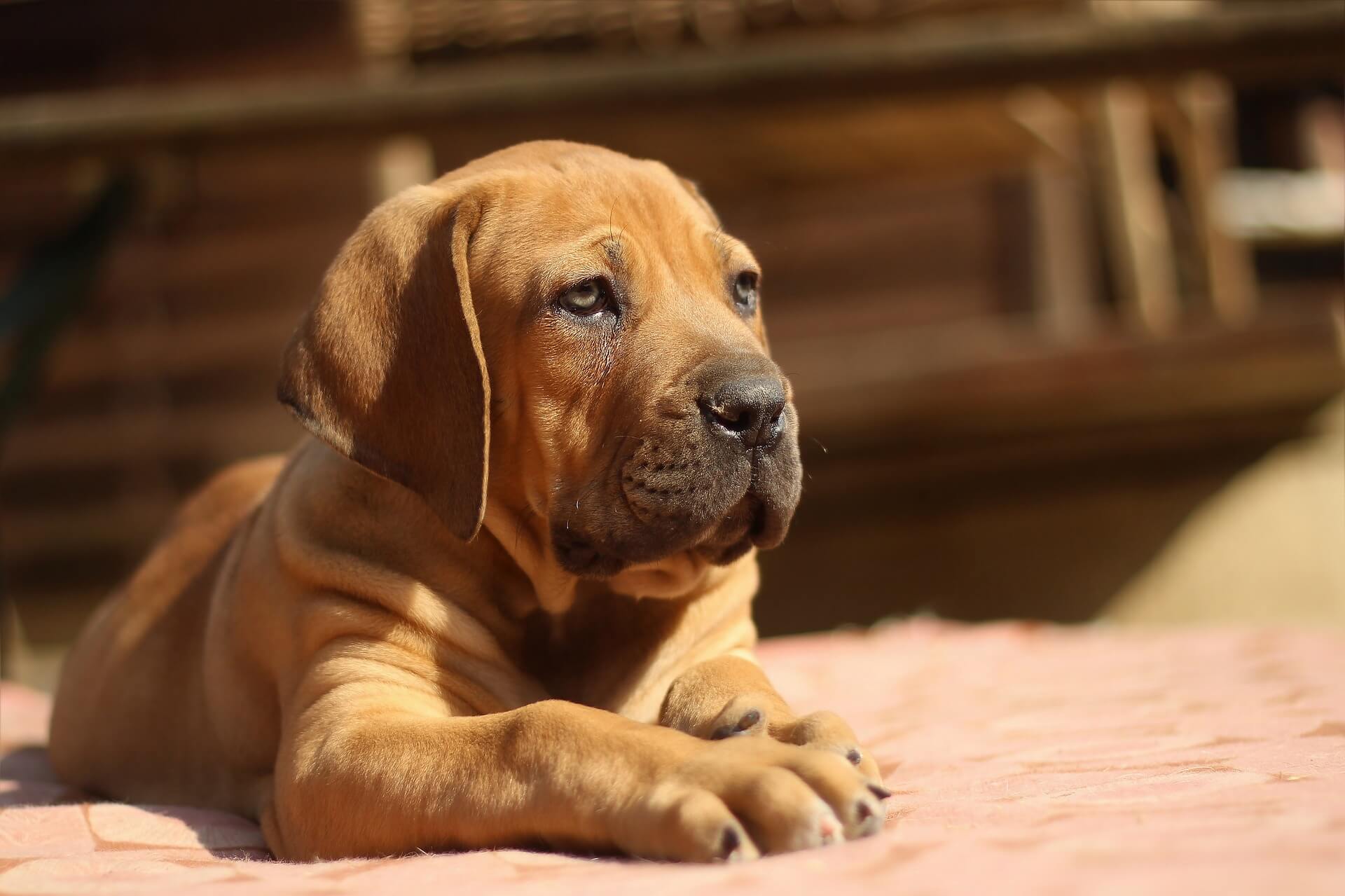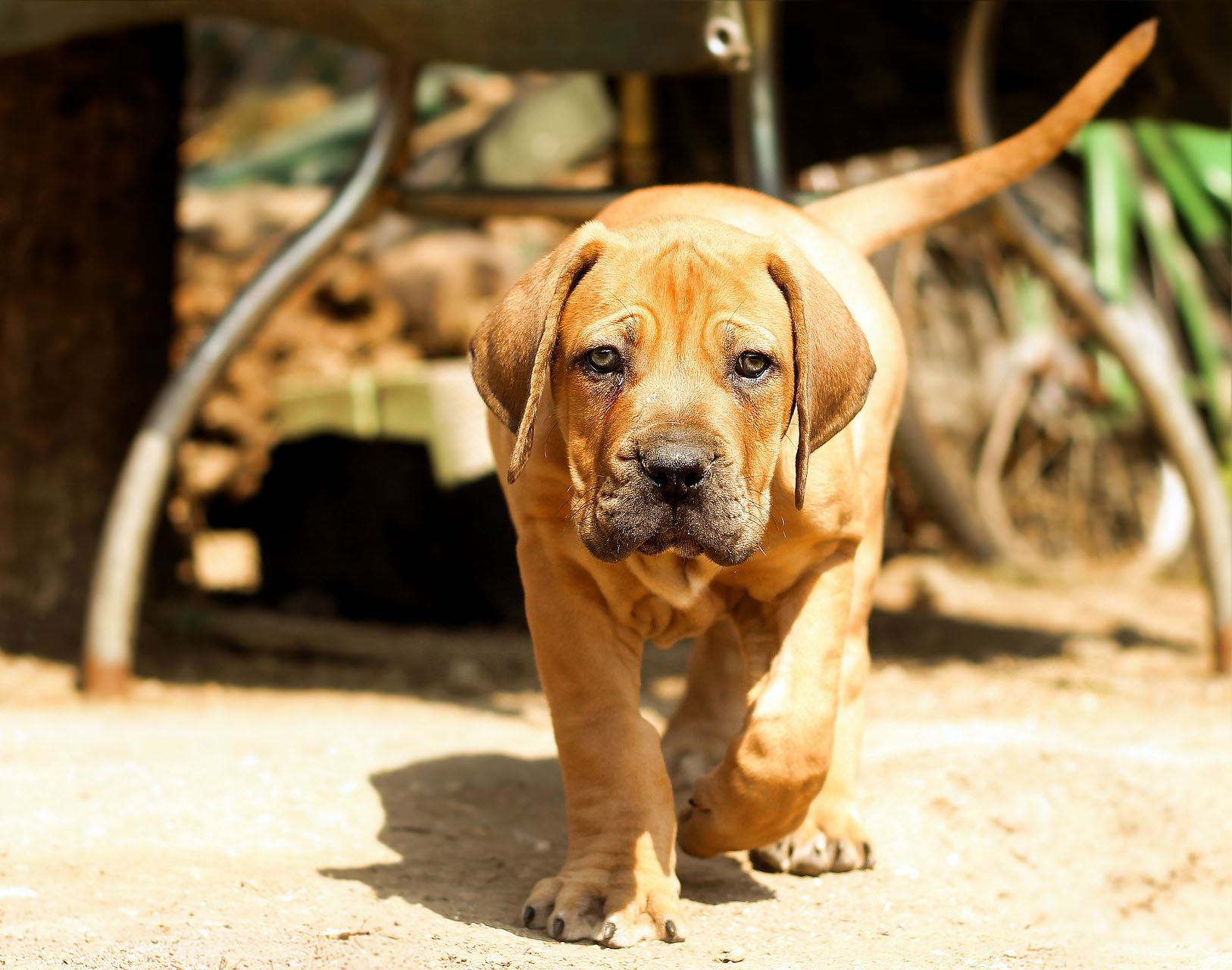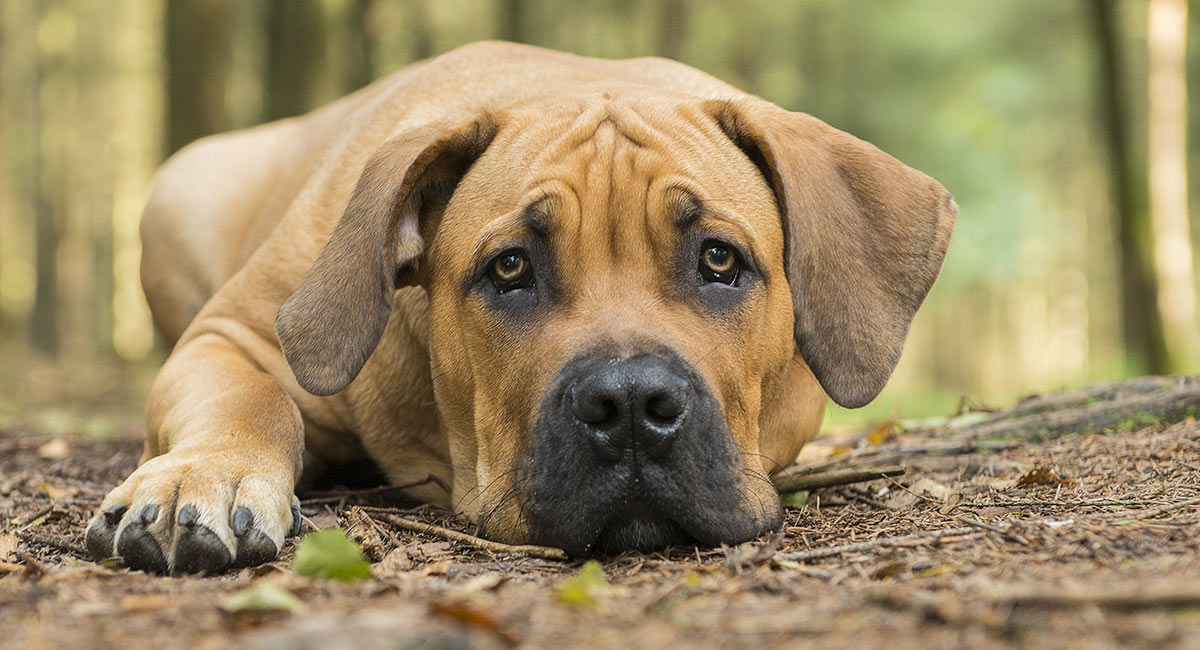
The Boerboel (pronounced “boo-r-bull”) is a powerful and loyal mastiff-type breed that hails from South Africa. The name Boerboel translates to “farmer’s dog” in Afrikaans, reflecting its origins as a protector of homesteads and farms in the harsh African environment. The breed was developed in the 17th century when Dutch, German, and Huguenot settlers brought large, strong dogs with them to South Africa. These dogs were then crossbred with local African dogs and other European mastiff breeds to create the Boerboel—a robust, fearless guardian capable of protecting property from both human intruders and wild animals, including big cats.
Boerboels were prized for their versatility, serving not only as guard dogs but also as working farm dogs, hunters, and loyal companions. The breed was officially recognized by the South African Kennel Union in 1983 and later by the American Kennel Club (AKC) in 2015. Today, Boerboels are appreciated worldwide for their protective instincts, loyalty, and balanced temperament.
While the Boerboel remains most popular in South Africa, where it continues to serve as a trusted guardian, its reputation has spread internationally. In the United States and other countries, the Boerboel is gaining recognition as both a family protector and a loyal companion. Its confident demeanor, combined with a deep loyalty to its family, makes it a favorite among those seeking a reliable guard dog with a calm and affectionate side.
However, due to its size, strength, and protective instincts, the Boerboel is best suited for experienced dog owners who can provide firm but fair leadership and proper training.
The Boerboel is a large, muscular, and imposing dog with a well-proportioned, athletic build.
• Coat: The breed has a short, dense, and smooth coat that lies close to the body. Coat colors include shades of fawn, red, brown, brindle, and black. Some Boerboels may have a black mask on the face.
• Size: Males typically stand 24 to 27 inches tall at the shoulder and weigh between 150 to 200 pounds. Females are slightly smaller, standing 22 to 25 inches and weighing 110 to 150 pounds.
• Head & Expression: The Boerboel has a large, broad head with a square muzzle and strong jaws. Its dark brown, almond-shaped eyes give it a confident, intelligent expression.
• Ears: Medium-sized, V-shaped, and set high, the ears hang close to the cheeks, adding to the breed's alert appearance.
• Body: The Boerboel has a powerful, athletic body with a broad chest, strong back, and well-developed muscles. The tail is typically docked in countries where this practice is allowed, though many Boerboels now have natural tails.
The Boerboel is known for its confidence, loyalty, and protective instincts, making it an excellent family guardian and companion.
• Protective and Confident: The Boerboel is naturally protective of its family and property. It is confident and fearless, making it an excellent guard dog.
• Loyal and Affectionate: Despite its imposing appearance, the Boerboel is deeply loyal and affectionate with its family, including children, when properly socialized.
• Intelligent and Trainable: The breed is highly intelligent and responds well to consistent, positive training. Early socialization and training are essential to ensure a well-mannered dog.
• Calm and Even-Tempered: While alert and watchful, the Boerboel is generally calm and composed, displaying a balanced temperament in most situations.
• Good with Children: Boerboels are known for their patience and protective nature toward children, though supervision is recommended due to the breed's size.

If you're looking for a loyal, confident, and protective companion, the Boerboel is an excellent choice.
• Exceptional Guardian: The Boerboel’s natural protective instincts make it one of the best guard dogs for families and properties.
• Loyal Family Member: Despite its role as a protector, the Boerboel is affectionate and devoted to its family.
• Intelligent and Capable: This breed excels in obedience training, protection work, and other tasks that challenge its mind and body.
• Balanced Temperament: The Boerboel is calm and even-tempered, making it a steady and reliable companion when properly trained.
• Versatile Working Dog: In addition to guarding, Boerboels excel in tasks like tracking, weight pulling, and obedience competitions.
The Boerboel requires consistent care, training, and exercise to maintain its health and well-being.
• Grooming: The short coat is easy to maintain, requiring only weekly brushing to remove loose hair and keep it clean. Regular ear cleaning and nail trimming are important to prevent infections.
• Exercise: Boerboels are active dogs that need daily exercise to stay fit and happy. Long walks, playtime in a secure yard, and mental stimulation are essential.
• Training and Socialization: Early and consistent training is crucial for Boerboels. Socialization with people, other dogs, and different environments helps prevent overprotectiveness.
• Nutrition: Provide high-quality dog food tailored to large, active breeds. Monitor portion sizes to prevent obesity, which can strain the joints.
• Health Monitoring: Regular veterinary checkups are essential, particularly for monitoring joint health and overall well-being.
The Boerboel is generally a healthy breed but, like all large dogs, may be prone to certain health issues.
• Hip and Elbow Dysplasia: Common in large breeds, this condition can affect mobility. Regular exercise and maintaining a healthy weight can help manage it.
• Bloat (Gastric Torsion): A life-threatening condition in deep-chested breeds. Feeding smaller, frequent meals and avoiding vigorous exercise after eating can reduce the risk.
• Heart Issues: Boerboels may be prone to heart conditions like subaortic stenosis (SAS). Regular veterinary checkups can help detect and manage heart problems.
• Entropion: A condition where the eyelid rolls inward, causing irritation. This may require surgical correction.
• Obesity: Maintaining a healthy diet and exercise routine is crucial, as Boerboels can gain weight easily.

Compared to other mastiff breeds like the Bullmastiff or Cane Corso, the Boerboel is often more agile and versatile. While the Bullmastiff is known for its guarding instincts, the Boerboel is more active and requires more exercise. The Cane Corso shares similar protective qualities but tends to have a leaner build compared to the Boerboel's robust frame. Boerboels are often more family-oriented and affectionate than some other mastiff breeds, though all require experienced handling.
The Boerboel is perfect for experienced dog owners seeking a loyal, intelligent, and protective companion. If you can provide the leadership, training, and exercise this breed needs, the Boerboel will be a devoted and reliable guardian for your family.
However, if you're a first-time dog owner or prefer a low-maintenance, less active dog, a different breed might be more suitable. The Boerboel’s size, strength, and protective instincts require a knowledgeable and committed owner.
United Pet Club is here to help you find the perfect canine companion. Whether you're looking to adopt or connect with trusted breeders, we provide valuable resources to guide you every step of the way.
Explore our platform to learn more about Boerboels, their history, and how to care for them. Contact United Pet Club today to start your journey with this confident and protective South African guardian!